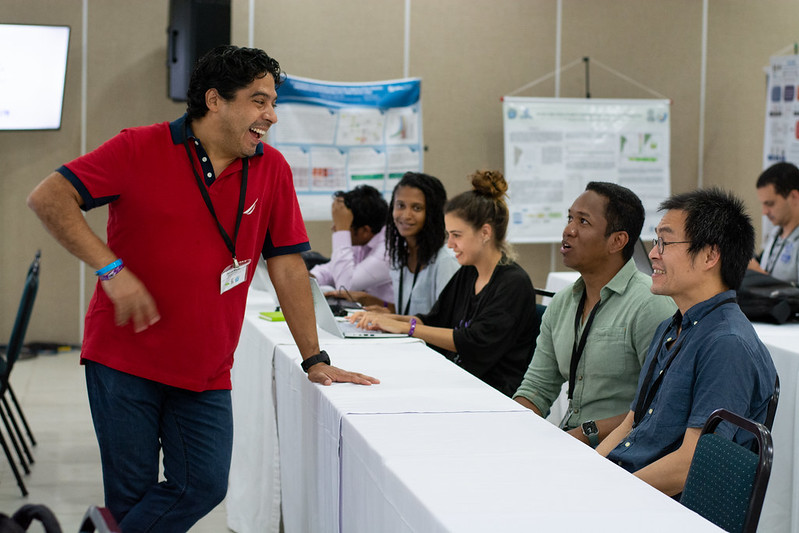- This is an important first step. It is really exciting, says Professor at the Geophysical Institute and Bjerknes Centre, Noel Keenlyside.
Keenlyside leads the EU-funded TRIATLAS-project. To predict future changes in marine ecosystems, you need to run many computer simulations. Traditionally only institutions with sufficient financial and technical resources could manage this. But now the project has introduced a possible solution to use simple and free technologies to allow any modelling group to perform these exercises. The new method is also a significant breakthrough when it comes to time efficiency. Previously, running such marine ecosystem model would have taken weeks, but now it can be completed in 30 hours.
- This is a major breakthrough. To achieve this we needed to bring marine ecosystem and climate modellers together. This can become a powerful tool for managers and policy makers”, says Keenlyside.

Easier to predict changes
When the global temperatures rise, the temperature in the ocean also increases. And as the amount of CO2 in the atmosphere rise, so does the amount of CO2 in the ocean. A warmer ocean will make species migrate to find conditions they prefer. By making marine ecosystem models more accessible, it will be easier to predict how the ocean will change in the future.
Jeroen Steenbeek, researcher at the Ecopath International Initiative led this work in the TRIATLAS project. He explains the progress as follows.
- By constructing the "MacGyver" framework from simple and open-source tools we basically allow any ecosystem modeller, around the world, to better assess their models for policy advice, without the need for IT skills or expensive hardware.
In this video, you can learn more about how climate models can be combined with ecosystem models to improve the prediction of marine ecosystems.
Make the model operational
According to Steenbeek, lack of robustness assessments has hampered the uptake of the Marine Ecosystem Models in the policy and decision-making arenas, where they are needed. But amongst the challenges now is how to make the model operational, so that it becomes useful.
- The availability of new capabilities inevitably raises new questions for which the Marine Ecosystem Models community is not yet prepared. The framework now allows Marine Ecosystem Models to run hundreds of times, but making sense of the terabytes of data that comes out of these runs is a challenge that requires a theoretical framework that does not really exist yet.
The result was produced through very collaboration and interdisciplinary efforts within the TRIATLAS project and included the Norwegian Climate Prediction Model. The new approach is to use complex numerical models of the marine ecosystem. These models include complex interactions in the marine ecosystem and also the influence of environmental factors and fisheries. The new models can be used to investigate how climate and fisheries could influence marine ecosystems over the next few years.

The way forward
Financed by the EU, TRIATLAS aims to study the current situation of the Atlantic Ocean`s marine ecosystem and predict future changes. According to Keenlyside this new result in the project will benefit the scientific community, fishery managers and people who plan how to use ecosystem services. For the moment, this has been developed for the South and Tropical Atlantic, but the prediction system is based on global models. Thus, this approach can be used everywhere. However, there is still a lot more work to be done.
According to Steenbeek there are two things that are important going forward. The first thing is to further develop and mature the framework in close collaboration with the global Marine Ecosystem Models-community, and at the same time work with global initiatives such as The Fisheries and Marine Ecosystem Model Intercomparison Project to develop and mature the statistical tools to digest the massive amounts of data, and to start the work to make the process of modelling for policy more robust.
- These are the first results from the system, and there is still quite a long way to go before they will be operational. However, there is a great potential here and I see this opening a new area of active research”, says Keenlyside.
Reference: Jeroen Steenbeek, Pablo Ortega, Raffaele Bernardello,Villy Christensen, Marta Coll, Eleftheria Exarchou, Alba Fuster‐Alonso, Ryan Heneghan, Laura Julià Melis, Maria Grazia Pennino, David Rivas and Noel Keenlyside
https://agupubs.onlinelibrary.wiley.com/doi/epdf/10.1029/2023EF004295

